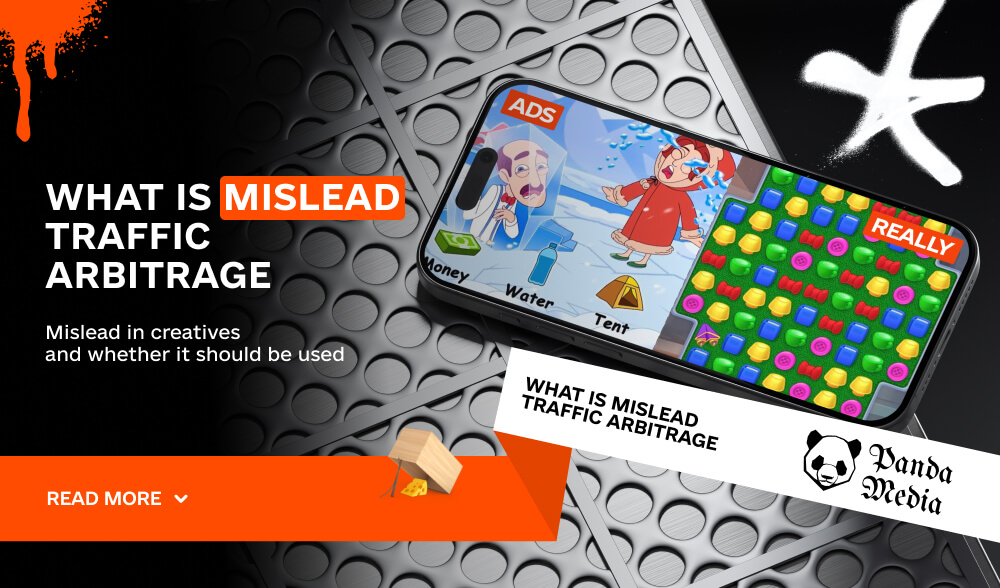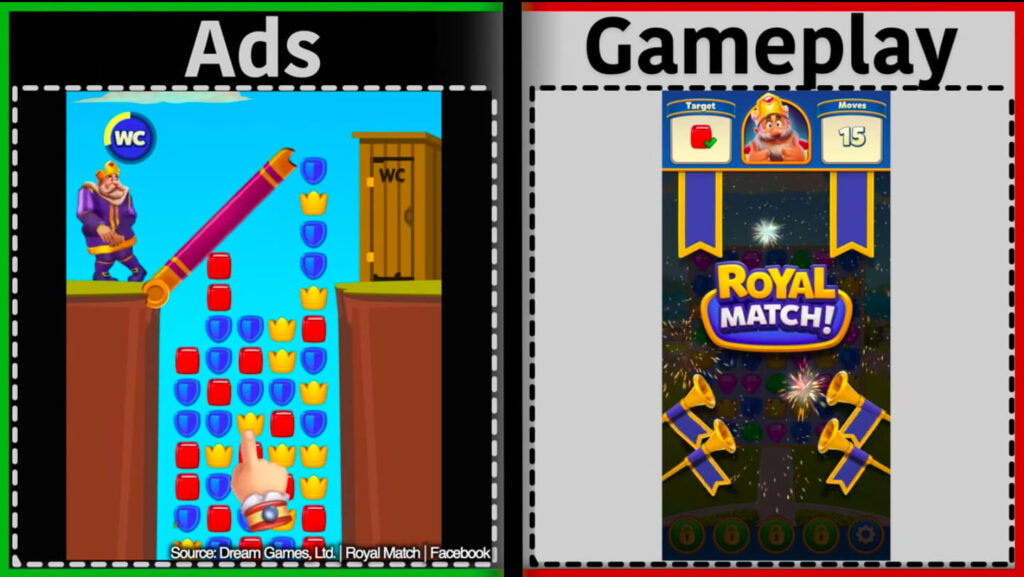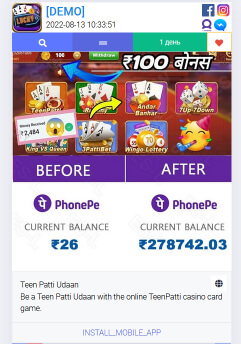Don't miss interesting news

In affiliate marketing, there are categories of approaches: white, gray, and black. The difference is often not obvious, and discussions about ethical aspects are meaningless.
Let’s discuss a method in creatives known as a mise en scène. Let’s look at examples and explain the attitude of advertisers to this phenomenon.
The term “mislead” translates to disorientation. Mislead is a purposeful misleading to get users to perform a targeted action.
The best examples of this mechanic are mobile game creatives. They are present in apps and social networks, offering stories with unique events and colorful animations. However, after installing the game, these features are often missing.
Such creatives are designed to make users install the game and then forget to uninstall it, although the effectiveness of this approach depends on individual user behavior.

In classic arbitration verticals, misleading information is used regularly, but the level of misinformation varies. For example, the absence of promised free spins may upset a player, but it will not stop him from playing. At the same time, when, instead of filling out forms with attractive women, they are suddenly advised to spend money on webcams, the reaction will be completely different.
Trail is often confused with motive, although motivated traffic also promises various benefits. However, the main difference lies in the degree of “deception”. The trial exaggerates the real properties of the product, while the motive is usually based on outright fiction.
SPY services constantly have advertising creatives that encourage you to invest $10,000 in bets with the promise of getting $20,000 the next day. Or offers to invest in a new project that does not generate income. Such creatives can bring targeted actions, but not every affiliate chooses this method.

There is a widespread belief that a mistake is associated with a scam, but a detailed analysis shows otherwise. In cases where the advertiser allows for non-standard approaches, the use of creatives with overpromises is acceptable.
Misleading is often equated with fraud, which is not always correct. Fraud involves spinning targeted actions and attracting uninterested people. However, if the advertiser makes a profit, they are not considered fraud.
Most white and conditionally white products prohibit fraud by default. Advertisers can reject traffic without paying for the conversion if it is specified in the terms of the offer.
Everyone decides for themselves whether to make a mistake or not. The ethical aspect of arbitration is among the most rhetorical issues in the niche. Nowadays, there are a lot of white papers that provide a wide range of choices for effective advertising.